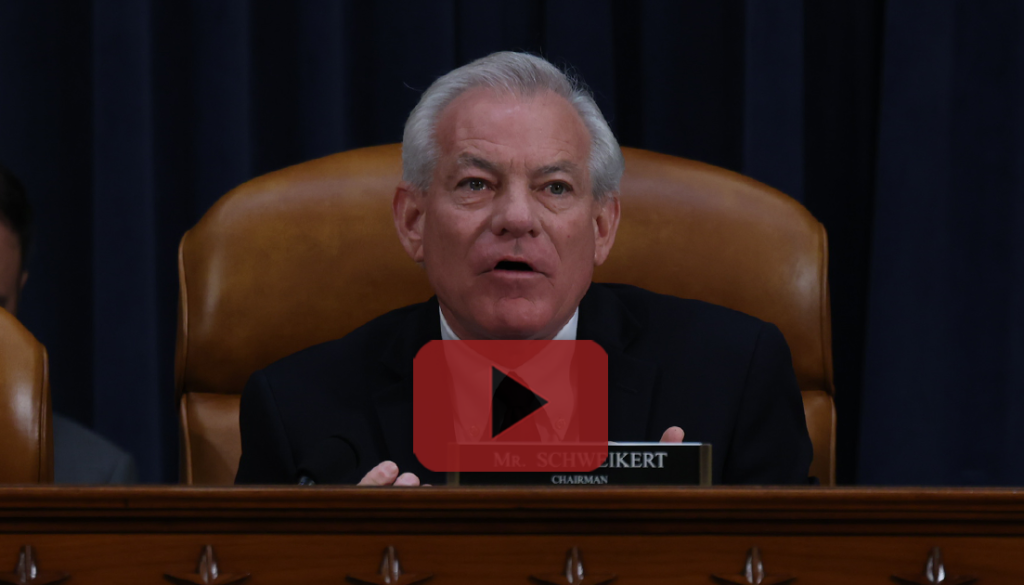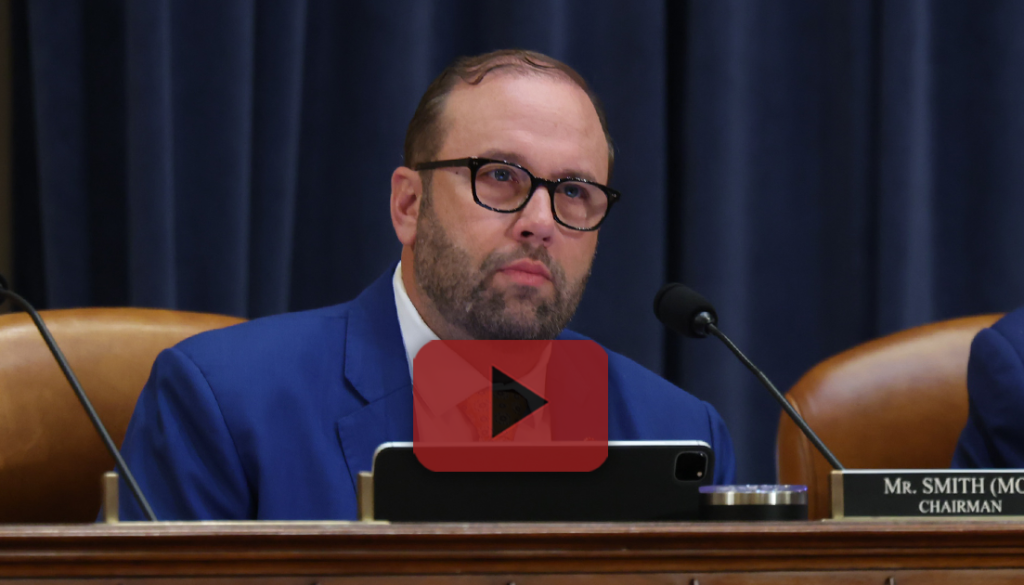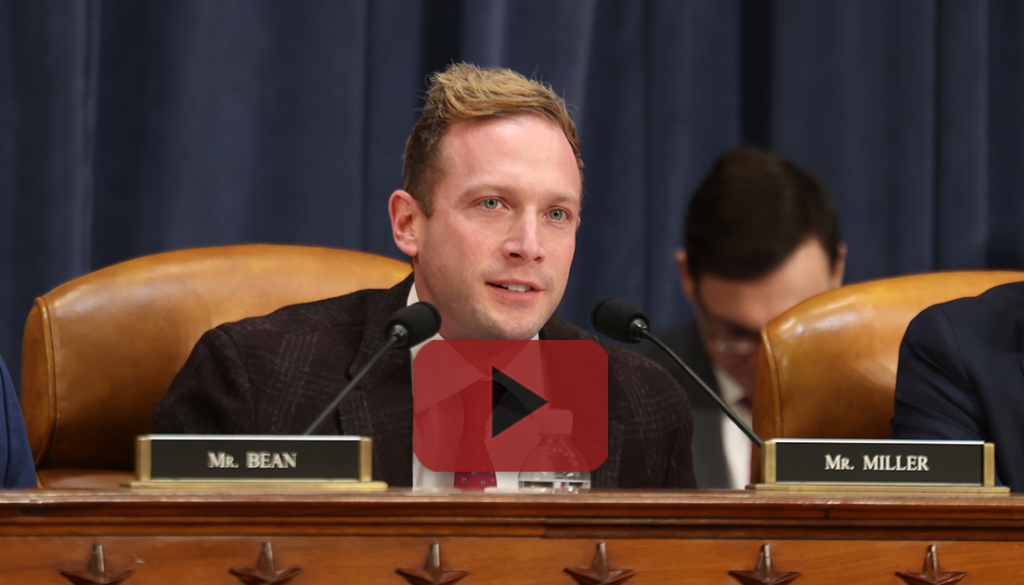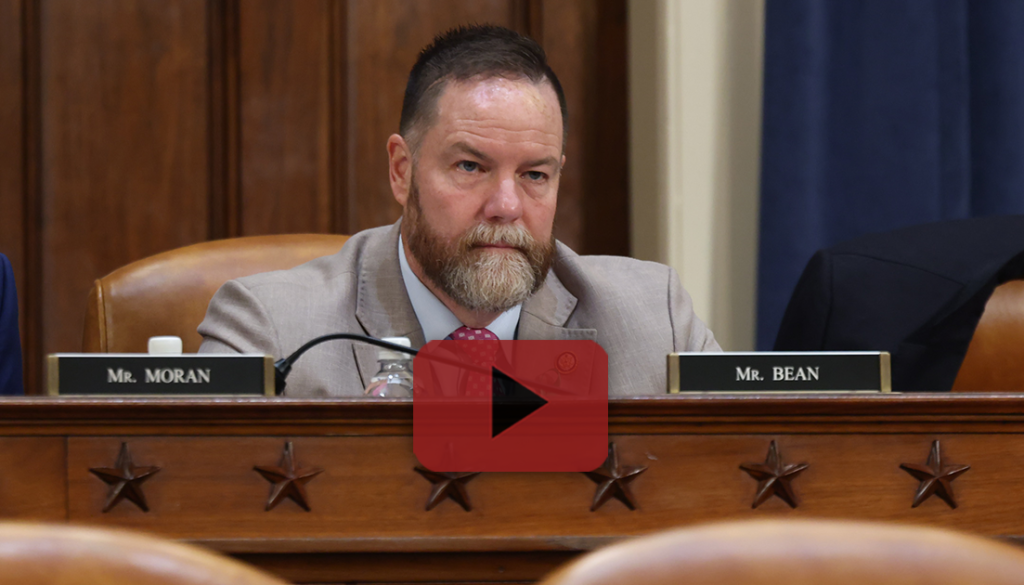WASHINGTON, D.C. – Clear policy and tax certainty are critical to continue to make the United States the global leader in cryptocurrency, according to testimony provided during a Ways and Means Oversight Subcommittee hearing on ensuring America’s digital asset policy is built for the 21st century. Experts in cryptocurrency and other digital assets spoke about how the lack of a clear framework regarding the treatment of digital assets in the tax code will hinder growth, and threaten America’s leadership in the digital asset industry.
Tax Code Unprepared for Crypto
Witnesses pointed out several times during the hearing that the current rules in the tax code were written before cryptocurrency existed. The resulting tax framework creates ambiguity and confusion for the roughly 50 million Americans who own or exchange the various kinds of digital assets. This lack of clarity risks stalling future development and growth of U.S.-based cryptocurrency activity, including mining, staking, and trading on centralized and decentralized exchanges.
Rep. David Schweikert (AZ-01): “Currently the Internal Revenue Service Code defines crypto as a property, not currency. However, there are very few additional rules specific to digital assets, leaving many stakeholders often confused when it comes to the tax complications. That is our fixation here.”
“Tax Code Should Never Be a Barrier to Innovation”
The digital asset economy is an engine that drives rapid job growth. Yet, the tax code inhibits further economic growth and job creation by forcing stakeholders to spend vital resources on double-checking and triple-checking to ensure compliance with outdated tax rules instead of investing their time and resources in growth and innovation.
Chairman Smith: “Today, digital assets are a rapidly growing market, with over 50 million of our fellow citizens invested in some manner of cryptocurrency. Jobs in the digital asset economy expanded by 118 percent year over year. The Bitcoin mining industry alone has generated 31,000 jobs. There is clearly an opportunity and interest in encouraging further growth and innovation in this space. Ms. Mersinger, how does the current tax treatment of digital assets affect the industry and its customers, and how might more tax certainty encourage growth and investment in the crypto economy?”
Summer Mersinger, Chief Executive Officer of the Blockchain Association and former Commissioner of the Commodity Futures Trading Commission: “The current tax treatment of digital assets is complex. It’s burdensome; it’s costly; and for every dollar that is spent on complying with the tax code, that’s one less dollar that is injected back into the business, back into innovation, and the tax code should never be a barrier to innovation.”
Crypto Needs “Tax Certainty” For Future Innovation, Market Adoption
Cryptocurrency has rapidly evolved and grown recently. In just six years, the total value staked across proof-of-stake networks has risen from $50 million to $660 billion. However, the lack of a clear tax framework for taxpayers can stymy progress and weaken United States’s ability to provide global leadership.
Rep. Max Miller (OH-07): “Legislative activity across several committees, from market structure and financial services to stablecoins and banking has been strong. Tax policy is the through line connecting it all. Can you speak to how updated tax guidance would complement, or even accelerate progress on market structure, consumer protection, and custody of frameworks across Congress? And if I may, what is the cost of continued inaction on the tax side?”
Sarah Reilly, Vice President and Senior Tax Counsel at Fidelity Investments: “I think that’s a great point that as other regulatory efforts are moving forward, without having a tax code that keeps up, it could hinder the adoption and success of these efforts. I think a good example is in the context of stablecoin, there is still some work to be done in terms of broker reporting, especially if you’re imagining the use case of stablecoins being used as payment stablecoins. If you want there to be widespread adoption, there needs to be complementary tax code revisions as well. I think tax certainty is an important part of market adoption. Taxpayers when they lack confidence, it’s difficult to develop new products, to innovate, and I think it could be a real hindrance as we move forward in these other efforts, if the code does not keep up.”
United States Has “Small Window” To Get Crypto Tax Framework Right
Foreign nations are laying claim to the infrastructure of the digital asset economy and are quickly establishing market structure and fairer tax frameworks for the sector. For instance, the United Kingdom announced in January it would finish its digital asset frameworks by the end of this year, with other countries quickly following suit. In the hearing, one witness drew parallels between digital assets and past treatment of computer chip development as a warning about federal inaction and its impact on American leadership in the space. In order to maintain American leadership in the digital asset economy, one witness urged Congress to act swiftly and adopt a framework flexible enough to accommodate future digital asset innovations yet to be discovered.
Rep. Aaron Bean (FL-04): “You gave a great example of how the United States really got lost in the computer chips market. You’ve given the warning that we’re falling behind. I looked it up, and sure enough, the largest crypto exchange is located outside the United States. Three quarters of all crypto currencies are off the United States. Should we be worried that we’re falling behind?”
Alison Mangiero, Senior Director at the Crypto Council for Innovation: “We should both be worried that we’re falling behind, but also cognizant of the fact that these other jurisdictions are now looking at us to see what we’re going to do next. So I think we have a small window here where it’s incredibly important for us to get this right.”
Rep. Bean: “Is there a country that we should emulate, or is it that the United States has to flex and go our own way?”
Ms. Mangiero: “I think that we can learn things from the other regulators that are moving in these places…We want to make sure that we don’t have rules that are too prescriptive, that lock us into the technology in this place and time. So I would say principles-based, forward-looking, and like the U.K., we should aim to move quickly.”




